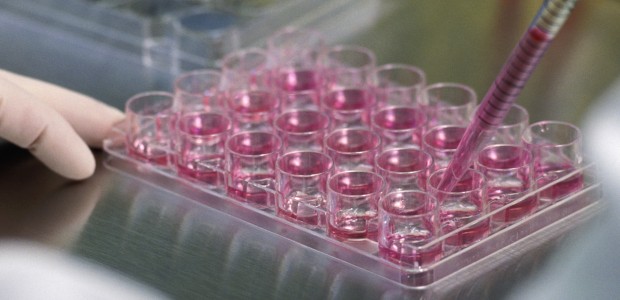If you or someone you love is affected by breast cancer, there is hope. Almost daily, new breakthroughs in research are being made.
Stem Cells To Fight Breast Cancer
Stem cell research continues to lead to new discoveries in science and medicine. Recently, researchers at the University of Michigan Comprehensive Cancer Center identified a gene (RhoC) which may prevent the spread of breast cancer. The results of this research “suggest new avenues to combating the deadliest cells driving the most lethal stage of breast cancer progression” by targeting this gene in order to stop the spread of cancer stem cells.
Strongest Environmental Factors Risk Factors: Radiation and Hormone Therapy
The Institute of Medicine recently reviewed environmental causes and factors for breast cancer. They concluded that none of the consumer products such as industrial chemicals or pesticides (DDT/DDE) could be conclusively link to an increased risk of breast cancer.
However, there was enough evidence to support that exposure to radiation and postmenopausal hormone therapy, specifically estrogen and progestin hormone therapy, is directly linked to an increase risk in breast cancer.
The Institute of Medicine’s recommendations? “A woman should avoid inappropriate radiation exposure” particularly “doses delivered by computed tomographic (CT) imaging.” Of course the commonly referred-to “CAT Scans” cannot be avoided when trying to diagnose other medical issues, but this research is something to take into consideration when considering medical procedures.
Exercise Decreases Risk
Exercise has more benefits than looking and feeling good. Researchers at the University of North Carolina (Chapel Hill) have discovered that “even moderate exercise”, or 10 to 19 hours per week, can significantly decrease a woman’s risk of breast cancer.
In addition to exercise, according to the Institute of Medicine, other lifestyle factors with conclusive evidence to support the modest reduction in one’s risk of breast cancer include: limiting alcohol consumption, maintaining a healthy body weight, and reducing active smoking.
Breast Feeding May Reduce Risk
In a study conducted in Spain among 510 women with operable invasive breast cancer between 1997 and 2010, researchers observed a lower proportion of certain types of breast cancer among women who breastfed seven or more months.
Soy May Reduce Risk
A study cited in an article in Current Opinion in Nutrition and Metabolic Care found that women with “increased risk of breast cancer due to polymorphisms in genes associated with the disease may especially benefit from high soy isoflavone intake.” Isoflavones are high in polyunsaturated fat, fiber, vitamins and minerals. They allow the body to take in protein and decrease saturated fats. Some common sources of soy isoflavone are the soybean, soy milk, soy nuts, miso, edamame, and soy isoflavone supplements.
Mayo Clinic Launches New Treatment
The Mayo Clinic has recently launched The Breast Cancer Genome Guided Therapy Study, or the BEAUTY Project. The goal of the project is to tailor treatment to each individual patient by gaining an understanding of the genomics of cancer. This treatment approach is called pharmacogenomics and enables doctors to “prescribe the right drug for the right patient at the right dose and time.” For more information about the BEAUTY Project contact: 507-538-7623.

